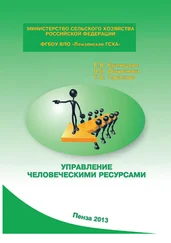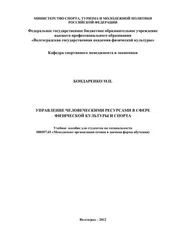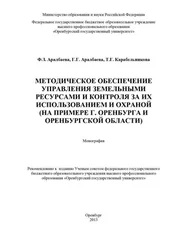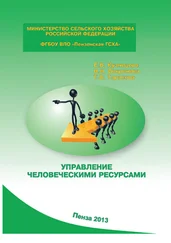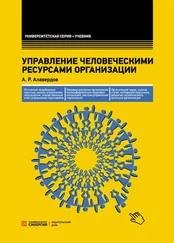373. Hutchinson S., Purcell J. Bringing Policies to Life: The vital role of front line managers in people management, CIPD, London, 2003.
374. Hutchinson S., Wood S. Personnel and the Line: Developing the Employment Relationship, IPD, London, 1995.
375. Ichniowski C., Shaw К., Prennushi G. The effects of human resource management practices on productivity: a study of steel finishing lines. The American Economic Review, June, 1997.
376. IDS Human Resource Management Systems, IDS, London, 2002.
377. IDS Searching for the magic bullet, HR Study 783, October, pp. 2–6, 2004.
378. Industrial Participation Association. Towards Industrial Partnership, IPA, London, 1995.
379. The Industrial Society Practical Policies for Participation, The Industrial Society, London, 1974.
380. The Industrial Society Managing Best Practice: Coaching, IDS, London, 1999.
381. The Industrial Society Managing Best Practice, Training evaluation, IDS, London, 2000.
382. Institute of Personnel and Development Code of Professional Conduct, IPD, London, 1993a.
383. Institute of Personnel and Development Quality: People management matters, London, 1993b.
384. Institute of Personnel and Development Code on Employee Involvement and Participation, IPD, London, 1993c.
385. Institute of Personnel and Development People Make the Difference, IPD, London, 1994.
386. Institute of Personnel and Development. The Development of the New Psychological Contract, (unpublished), 1995.
387. Institute of Personnel and Development Key Facts on Psychological Testing, IPD, London, 1997a.
388. Institute of Personnel and Development. The IPD Guide on Implementing Computerised Personnel Systems, IPD, London, 1997b.
389. Institute of Personnel and Development IPD 1998 Performance Pay Survey: Executive Summary, London, 1998a.
390. Institute of Personnel and Development. The IPD Guide to Outsourcing, IPD, London, 1998b.
391. Institute of Personnel and Development. Organisational Development – Whose Responsibility? IPD, London, 1999a.
392. Institute of Personnel and Development. The IPD Guide on Using Your Computerised Personnel Effectively, IPD, London, 1999b.
393. Institute of Personnel Management. Performance Management in the UK: an analysis of the issues, IPM, London, 1992a.
394. Institute of Personnel Management. Statement on Counselling in the Workplace, IPM, London, 1992b.
395. Institute of Personnel and Development. Key Facts on Psychological Testing IPD, London, 1997.
396. Institute of Personnel and Development (1999). Key Facts on References IPD, London, 1999.
397. IRS . Trends in performance management, Employment Review, 1 August. 2003, pp. 12–19.
398. IRS. Recruiters march in step with online recruitment, Employment Review no 792, 23 January. 2004a, pp. 44–48.
399. IRS. Survey of HR roles and responsibilities, Employment Review no 795, March, 2004b, pp. 9–15.
400. IRS. Managing to make the best hiring choice, Employment Review no 796, 19 March, 2004c, pp. 43–48.
401. IRS. Managing attendance the flexible way, Employment Review no 798, 16 April, 2004d, pp. 19–24.
402. IRS. From the outside looking in: third-party dispute resolution, Employment Review, 23 July, 2004e, pp. 8–15.
403. IRS. A graphic illustration: getting the best from recruitment ads, Employment Review no 805, 6 August, 2004f, pp. 42–48.
404. IRS. Training survey, Employment Review no 807, September. 2004g, pp. 10–17.
405. IRS. It pays to talk: gauging the employment relationship, November, 2004i, pp. 9–16.
406. IRS. Systems error? How HR chooses and uses information systems, Employment Review no 812, November, 2004h, pp. 9–15.
407. IRS. Absence essentials: maintaining contact, Employment Review no 818, February, 2005, pp. 23–24.
408. IRS Employee Development Bulletin no 54. Management development, pp. 10–12, 1994.
409. IRS Employee Development Bulletin, November, 2000, pp. 8–12.
410. IRS Employment Trends no 500. 20 years of industrial relations, p. 2, 1991.
411. IRS Employment Trends no 544. Multi-employer bargaining, pp. 6–8, 1993.
412. IRS Employment Trends no 556. Where are the unions going, pp. 14–16, 1994.
413. IRS Employment Trends no 807. Training Survey, pp. 10–17, 2004.
414. IRS Management Review. Using Human Resources to Achieve Strategic Objectives, IRS, London, 1996.
415. IRS Management Review (2002) Work/life Balance, IRS, London.
416. Ishikawa Kaoru. Guide to Quality Control, Asian Productivity Organization, Tokyo, 1976.
417. James R., Sells S. В. Psychological climate: theoretical perspectives and empirical research, in D. Magnusson (ed) Towards a Psychology of Situations: An interactional perspective, Erlbaum, Hillsdale, NJ, 1981.
418. Janis I. Victims of Groupthink, Houghton Mifflin, Boston, MA, (1972).
419. Jaques E. (1961) Equitable Payment, Heinemann, London, 1961.
420. Johnson G, Scholes К. Exploring Corporate Strategy, Prentice Hall, Hemel Hempstead, 1993.
421. Johnson G., Scholes К. Exploring Corporate Strategy, Prentice Hall, Hemel Hempstead, 1997.
422. Johnston J. An empirical study of repatriation of managers in UK multinationals, Human Resource Management Journal, 1(4), pp. 102–108, 1991.
423. Jones P., Palmer J., Whitehead D., Needham P. Prisms of performance. The Ashridge Journal, April, pp. 10–14, 1995.
424. Jones T. W. Performance management in a changing context, Human Resource Management, Fall, pp. 425–42, 1995.
425. Jung С. Psychological Types, Routledge Kegan Paul, London, 1923.
426. Juran J. N. Quality Control Handbook, McGraw-Hill, New York, 1979.
427. Kahn R. Organizational Stress, Wiley, New York, 1974.
428. Kahn-Freund О. Labour and the Law, Stevens, London, 1972.
429. Kakabadse A. The Politics of Management, Gower, Aldershot, 1983.
430. Kalleberg A. L., Loscocco К. А. Aging, values and rewards: explaining age differences in job satisfaction, American Sociological Review, 48, pp. 323– 36, 1983.
431. Kamoche К. Strategic human resource management within a resource capability view of the firm, Journal of Management Studies, 33(2), pp. 213–33, 1996.
432. Kandola R., Fullerton J. Managing the Mosaic: Diversity in action, Institute of Personnel and Development, London, 1994.
433. Kane J. S. The conceptualisation and representation of total performance effectiveness, Human Resource Management Review, Summer, pp. 123–15, 1996.
434. Kanter R. M. The Change Masters, Allen & Unwin, London, 1984.
435. Kanter R. M. When Giants Learn to Dance, Simon & Schuster, London, 1989.
436. Kaplan R. S., Norton D. P. The balanced scorecard – measures that drive performance, Harvard Business Review. January/February, pp. 71–79, 1992.
437. Kaplan R. S., Norton D. P. The Balanced Scorecard, Harvard Business School Press, Boston, MA, 1996.
438. Katz D., Kahn R. The Social Psychology of Organizations, John Wiley, New York, 1966.
439. Katzenbach J., Smith D. The Magic of Teams, Harvard Business School Press, Boston, MA, 1993.
440. Kay J. Functions of Corporate Success, Oxford University Press, Oxford, 1993.
441. Kearns P. Evaluating the ROIFrom Learning, CIPD, London, 2005a.
442. Kearns P. Human Capital Management, Reed Business Information, Sutton, Surrey, 2005b.
443. Kearns P., Miller T. Measuring the impact of training and development on the bottom line, FT Management Briefings, Pitman, London, 1997.
444. Keenoy T. HRM: a case of the wolf in sheep’s clothing, Personnel Review, 19(2), pp. 3–9, 1990a.
445. Keenoy T. HRM: rhetoric, reality and contradiction, International Journal of Human Resource Management, 1(3), pp. 363–84, 1990b.
Читать дальше
Конец ознакомительного отрывка
Купить книгу



